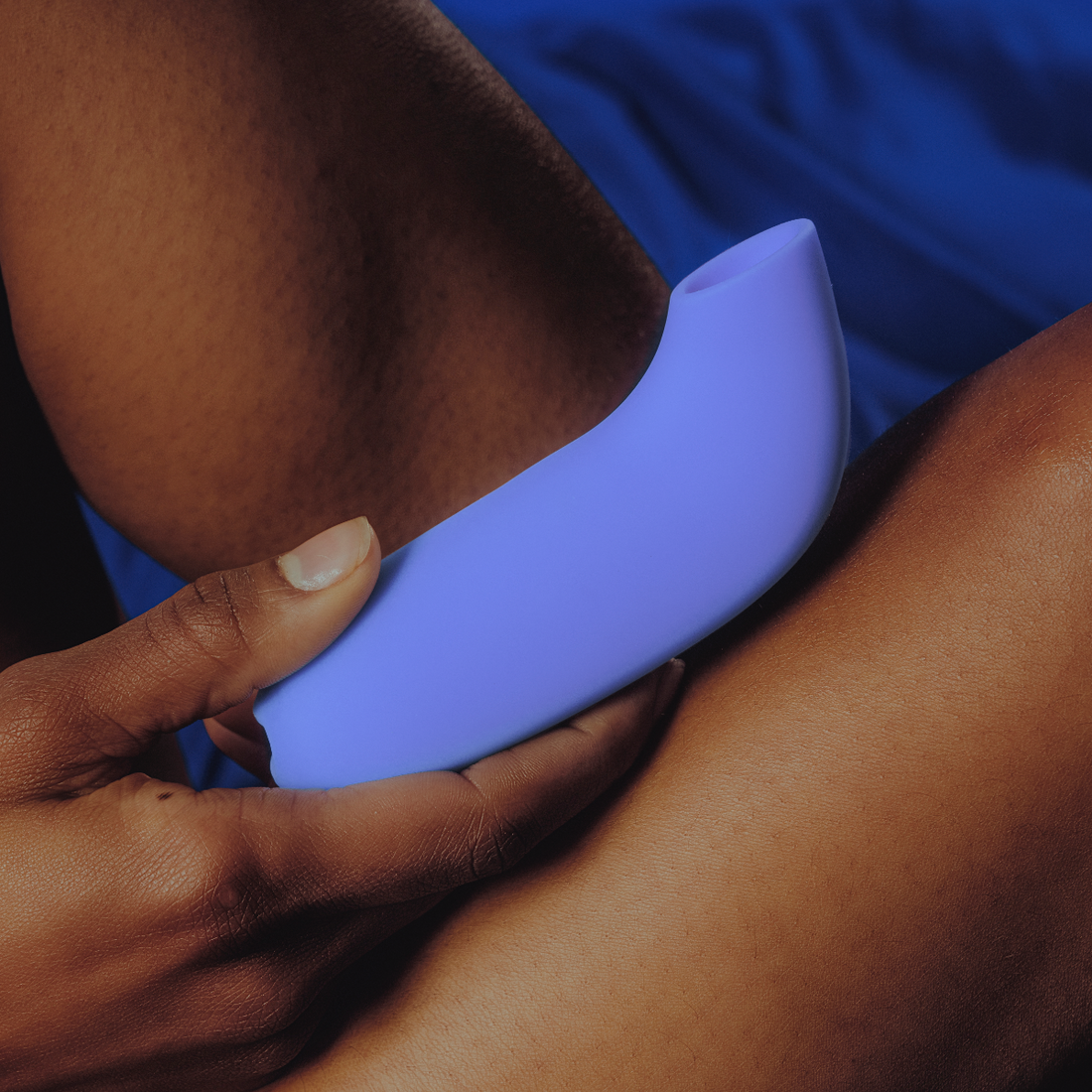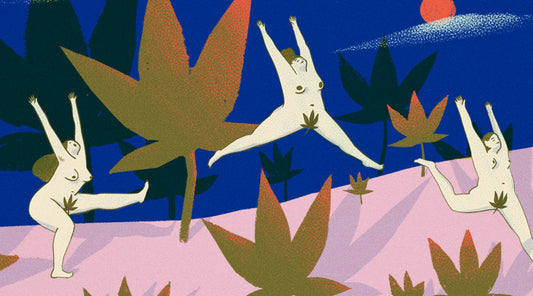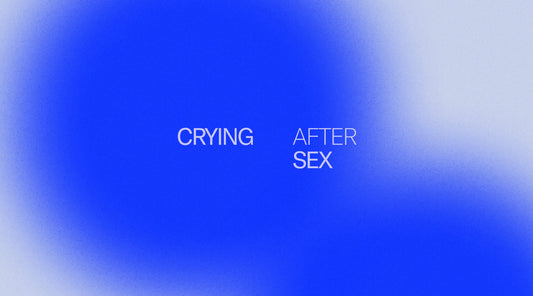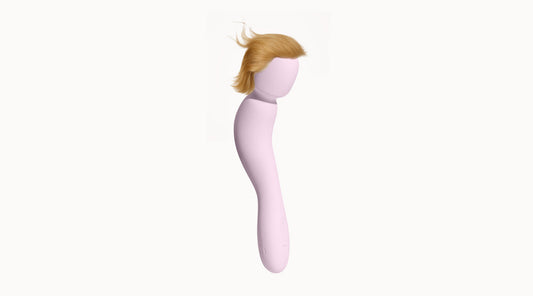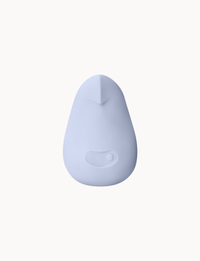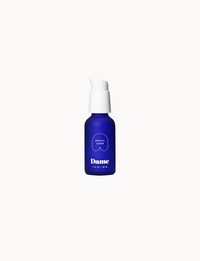Alexandra Fine, Credentialed Sexologist, M. Psych | Written by Dame
Is It Really Low Libido? | Physical Causes of Low Libido | Self-Managed Strategies for Increasing Libido
Have you ever watched a movie or TV show – and wondered how the characters can be ready to hop into bed at the drop of a hat (or a pair of pants)?
Have you wondered how they’re seemingly ready to go at it multiple times a day, in all sorts of different situations and locations?
You’re not alone.
Everyone’s libido, or sex drive, is different. Even long-time partners can wrestle with the issue of mismatched levels of sexual desire.
And the lack of a voracious sexual appetite doesn’t necessarily mean that anything’s “wrong.” Sure, there are some folks who can’t get enough. But just as many – or more – just have a relatively-low sex drive. If that’s not a problem for them (or their partner), then it’s not a problem at all.
Even so, it’s not unusual for people to be dissatisfied with their libido. Studies show that low sex drive is the most-commonly reported sexual problem for those with vulvas. It apparently isn’t as big a problem for penis-havers, but it’s still not uncommon; the Journal of Sexual Medicine has published one study showing that 14% percent of respondents between the ages of 18 and 29 had experienced low sex drive in the previous twelve months.
In many cases, low libido is a byproduct of medical issues or conditions, stress, unhealthy lifestyles, medication side effects, or mental disorders. In many others, however, someone who believes they have a low sex drive simply wishes that it was stronger.
Here’s the good news: in just about all of those cases, there are ways to increase libido.
Is It Really Low Libido?
It’s normal for people’s sexual desire to ebb and flow over the years. It’s normal for people’s interest in sex to decline as they get older. It may not be optimal, but it’s normal for one partner to want a more active sex life than the other.
Those situations might be troubling, but they don’t necessarily require medical advice. There are self-managed strategies that can be used to boost sexual desire, and we’ll discuss them later on.
On the other hand, when someone suddenly loses most or all of their interest in sex and doesn’t “recover,” or if they go through a difficult situation or illness that directly impacts their sex drive, that’s a different story. A medical professional can very often help to uncover the root causes, address them, and get that sex drive back to “normal.”
Physical Causes of Low Libido
Low sex drive can be caused by several types of physical problems: hormone imbalances, diseases and illnesses, and side effects from medications. Lifestyle and psychological issues may also be to blame.
Hormones
Hormone levels can often be the cause of low sexual desire. The problem most often develops as people grow older, but some cases of hormone imbalance – resulting in a lower libido – do occur in younger patients as well.
Common hormone issues are different in those with penises and those with vulvas.
Penis-Havers, Hormones and Libido
Testosterone is the most important sex hormone for penis-havers. It’s required for the development of “male sex organs,” it’s responsible for the body characteristics typical of those assigned male at birth, it’s instrumental in the production sperm – and it regulates sex drive and sexual performance.
So for obvious reasons, low testosterone can be a major problem for penis owners.
Testosterone levels naturally decrease with age, declining about one percent per year after age 30. That’s the major reason why those with penises may slowly lose interest in sex as they get older. (Half of those over the age of 80 suffer with hypogonadism, or low-T.) It’s estimated, though, that 1-2% of younger penis-havers may suffer from what’s called testosterone deficiency syndrome, causing problems like erectile dysfunction and low libido. Obesity and diabetes can be contributing factors.
Testosterone replacement therapy may be prescribed to help those with low sexual desire as a result of low testosterone levels. PDE inhibitors like Viagra or Cialis may also be prescribed.
Vulva-Havers, Hormones and Libido
Estrogen is the key sex hormone for vulva owners, and it’s a lot less predictable than testosterone.
Estrogen levels soar dramatically just before ovulation. That makes sense; estrogen is known to boost libido and desire, which in turn encourages reproduction when the body is fertile. Conversely, estrogen levels drop at the end of the menstrual cycle, while levels of another hormone, progesterone, rise. High progesterone levels can cause fatigue, bloating, symptoms of PMS – and much less interest in sex.
Those hormonal changes, and their accompanying effects on the “female libido,” are normal. So is a lower interest in sex when taking birth control pills or using other hormonal birth control methods, because they smooth out estrogen levels and prevent a regular monthly surge in sex drive.
One more thing is normal as well: estrogen levels drop during and after menopause. That means that sexual arousal usually drops as vulva-havers grow older. Less estrogen also affects sexual function by increasing vaginal dryness, hot flashes, and other physical issues, all of which can lower the desire for sex and overall sexual satisfaction.
Vulva owners suffering from low libido that can’t be attributed to other causes may be treated with estrogen therapy, more often prescribed post-menopause. Not all doctors prescribe the therapy, though, because it can have some serious side effects. They may instead recommend some of the self-managed strategies we’ll discuss shortly.
Diseases and Illnesses
People suffering with chronic medical conditions very often find that they are unexpectedly experiencing low sex drive or decreased sexual functioning. Here are some of the common culprits.
High Blood Pressure and Heart Disease
Research shows that hypertension is often associated with a decrease in sexual desire. In some cases, medications used to treat the condition lead directly to lower libido. In others, the issue seems to be a “chain reaction” of sorts: high blood pressure affects blood flow, circulation problems then affect sexual performance, and sexual dysfunction may lead to depression and/or a lower interest in sexual activity.
There are several approaches to these issues. The first is getting blood pressure under better control, and adjusting or changing hypertensive medications if necessary. ACE inhibitors may be less likely to impact sexual activity, although there has been some research showing that those drugs may also cause a decrease in sexual desire.
The second is adding medication that can improve blood flow. That’s more likely to help penis-havers, whose erectile function usually improves on prescription meds like Viagra or Cialis. However, hormone treatment may be used to help vulva-havers.
Finally, a mental health counselor may be able to help with related depressive issues.
Cardiovascular disease can cause similar problems with blood flow, leading to difficulties with sexual function and lower libido. The same types of medical approaches may help.
Diabetes
Poorly-managed diabetes can be another reason for a lower sex drive. One major reason is the vascular and nerve damage that’s caused by the disease, which can lead to the same “chain reaction” of sexual dysfunction and lack of desire we’ve already mentioned.
Another issue is that diabetes often causes a drop in testosterone levels, a particular problem for penis owners. They may benefit from testosterone replacement therapy.
Obstructive Sleep Apnea
Research has shown that untreated sleep apnea may lead to low libido, particularly in older patients or those with symptoms of depression. As you’d probably guess, the treatment approach is likely to involve resolution of the sleep problems, and counseling or medication for depression if necessary.
Other Medical Conditions
There are other diseases and chronic illnesses which have been linked to low sex drive. They include kidney disease, brain tumors, stroke, hypothyroidism, HIV, Cushing’s and Addison’s diseases. Treatment should be determined by doctors already treating the underlying conditions.
Medications
Many antidepressants are well-known to have sexual side effects, and one of the most common is low libido. SSRIs like Lexapro and Prozac are the worst offenders, but other classes of antidepressants can also lead to low libido, as can anti-anxiety prescription medications like Xanax, anticonvulsant meds like Tegretol, steroids and opioids, and some meds used to treat blood pressure, heart disease and prostate conditions.
In some cases, doctors may be able to substitute or change medications in order to restore a patient’s sex drive.
Lifestyle Issues
Many of us have had less interest in sex when we’re dealing with work or relationship issues. That’s natural, and libido will almost always return to normal once the problems have been resolved. Continuing high levels of stress, however, can create long-lasting libido issues, as can major life changes.
Then there are the same unhealthy lifestyle choices that can cause problems like high cholesterol, obesity and even cancer; smoking, excessive drinking and drug use have all been linked to a drop in sex drive.
Psychological Issues
When medical or lifestyle causes can’t be found for serious sexual health issues, the problems could be psychological. Consulting a mental health professional or sex therapist is usually the next step in diagnosing and treating low libido.
Two specific mental health conditions may be responsible for a low sex drive, particularly in vulva-havers. They’re called hypoactive sexual desire disorder (HSDD) and sexual aversion disorder (SAD). The former is characterized by an absence of sexual desire and sexual fantasies, while the latter is an aversion to – and avoidance of – genital sexual contact.
Both conditions are difficult to treat, but psychotherapy combined with medications to adjust serotonin and dopamine levels are considered front-line approaches; the FDA recently approved the medication Vyleesi for the treatment of HSDD in premenopausal cases. Some therapists also suggest kegel exercises and masturbation (to increase genital blood flow and sexual comfort levels), as well as joint counseling with patients’ partners.
Self-Managed Strategies for Increasing Libido
For many of those who experience low sex drive, medical tests, drugs and counseling aren’t necessary. Libido issues are often temporary, or caused by personal and relationship issues which can be resolved with some focus and determination.
Re-Evaluate Your Lifestyle
We’ve already mentioned habits like smoking, drinking and drug use which can impact libido. Changing those habits may not be the easiest lifestyle changes to make, but it can pay off in a better sex life.
The general medical advice we’re all used to hearing from health care professionals is also good advice for restoring sex drive. Eating a proper diet can promote blood circulation; it can also lower the possibility of developing or exacerbating chronic issues (such as diabetes) that can affect libido. Exercise not only provides the same benefits, but it can help people cope with libido-damaging issues like obesity, body image and self-esteem.
Getting enough sleep can also help. Restful sleep increases energy levels and boosts mood, and there are studies linking high-quality sleep to a healthier libido.
Lower Stress
“Reduce stress.” That’s easy to say but not always easy to accomplish, since stress is often linked to complicated issues at work or home. It’s worth the effort, though. Stress increases cortisol levels in the body, and high cortisol levels have been shown to affect the libido.
If relationship issues are the major source of stress, it’s possible to ease two problems at the same time: lowering stress and making long-term improvements in the relationship. Experts recommend three approaches.
- Spending quality time together on activities outside of the bedroom, and ideally, outside of the home.
- Having honest conversations aimed at improving communication and resolving any underlying issues that may be causing resentment, anger or trauma.
- Participating in joint counseling, if necessary.
Another way to lower stress is through the practice of mindfulness or meditation. There’s evidence that regular mindfulness exercises not only provide a greater sense of overall well-being, but are able to significantly reduce stress and improve sexual desire.
Remove Sexual Roadblocks
Many cases of low libido are caused by sexual anxiety. Those who feel pressured to “perform” – either by a partner or by their own expectations – may end up with less desire for sex.
Understanding your own arousal triggers can be the first step, because it gives you a better comfort level with your sexuality. Watching porn, fantasizing, and masturbation with sex toys are just some of the approaches some people take to understand and boost their sexual desire.
When it’s time for partner play, spending more time on foreplay and mutual masturbation can increase sensuality and arousal while lowering the pressure to “perform.” Bringing mindfulness into the bedroom can also help both partners stay in the moment, enjoying the sensations of sex without the pressure of expectations.
The communication we’ve already discussed can help as well. The more that you and your partner understand each other’s sexual hot buttons, needs and desires, the more rewarding and less stressful your sexual activities will be.
Aphrodisiacs?
You may not believe in the power of aphrodisiacs – but if you’re feeling adventurous, or just want to vary your diet, some naturopaths suggest trying foods that supposedly increase libido, like pistachios and maca. They also recommend supplements like ginkgo biloba and red ginseng.
And then there are also the foods which have been rumored for centuries to have aphrodisiac properties, like chocolate, strawberries and oysters. They may or may not help boost your libido – but at the very least, you’ll certainly eat well!


